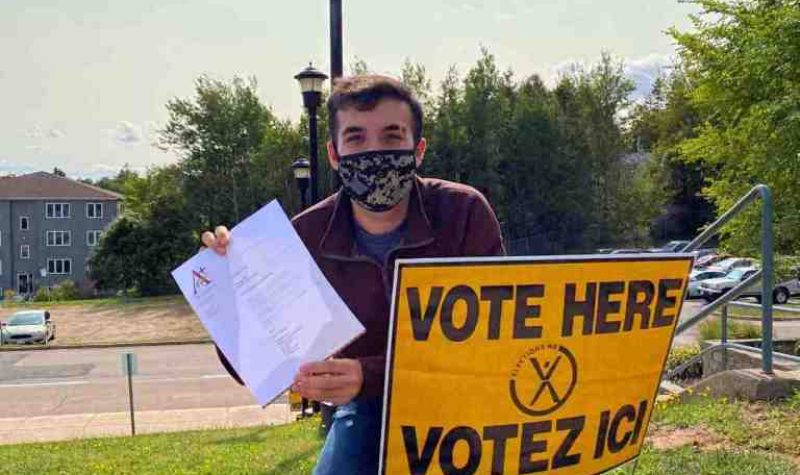The independent investigation into voter interference at the Sackville polling station during the last provincial election is complete.
Elections NB is not releasing the report completed by private investigator Jacques Ouellette, but has released a two-page summary of the findings and recommendations from Chief Electoral Officer Kim Poffenroth.
The summary report says that “confusion, as well as misinterpretation” of the 40-day residency rule and how it applies to student was a major factor contributing to the problems at the polls.
Ouellette “concluded that the issues encountered by students would likely have been reduced through better training of the poll workers,” according to the Elections NB summary.
The summary includes five actions to be taken, including a review of training materials related to the 40-day residency rule, and more training and education, for poll workers, scrutineer volunteers from political parties, and students themselves.

MLA Megan Mitton says the report doesn’t go far enough to address what happened to dozens of student voters in Sackville.
“I think the seriousness of what happened on Election Day does appear to be lost in this summary report,” say Mitton. “It’s important to note there doesn’t seem to be consequences for the scrutineer or anyone who interfered with voting.”
CHMA heard from students on election day that a Liberal party scrutineer gave incorrect information and discouraged eligible students from voting.
The Elections NB summary appears to refer to this incident: “One of the scrutineers present at the poll, who should not have directly engaged with electors, incorrectly told some students the letter [issued by Mount Allison for the purposes of validating their residency] was not acceptable as proof, and they could be committing voter fraud if they voted.”
Elections NB spokesperson Paul Harpelle told CHMA on September 21 that although interfering in the voting process is illegal, Elections NB could not take any action because the report was hearsay.
MLA Megan Mitton is also critical of the process for making complaints about interference, a process with didn’t seem to work on election day.
“There were still voters being denied the the right to vote at 7:59pm,” she says. “The polls closed at 8pm. A voter was denied and they came out at 7:59pm. They were told to go back in and they talked to another poll worker and they were able to vote right at the deadline. So the problems didn’t even get completely resolved on the day.”
Despite a phone call from Kim Poffenroth at 1:30pm to clarify the rules around the 40-day residency requirement, CHMA witnessed students coming out of the polling station well in to the evening complaining that they had been advised they would be committing fraud if they voted.
Elections NB launched its investigation after complaints from the the Mount Allison Students’ Union and a report by the New Brunswick Student Alliance at the end of September.
MASU President Jonathan Ferguson says members of the MASU executive committee are generally happy with the Elections NB report, and the actions identified by Chief Electoral Officer Kim Poffenroth.
“We definitely do agree that students faced inappropriate behavior throughout the entire experience,” says Ferguson. “We are hopeful that this promise to review the materials and really go back to the drawing board about what poll workers are being trained to do will help address that.”
One simple change being made by Elections NB could have more effect than the combined recommendations in the report.
The next fixed election day is slated for October 21, 2024, which is late enough in the fall that all students arriving in town by September 11 that year will have met the 40-day residency requirement, without having to prove that they are returning students. In fact, even those arriving for their first year will be eligible in 2024.
Background: The Elections Act requires that voters have been “ordinarily resident” in the province for the 40 days prior to election day. Chief Electoral Officer Kim Poffenroth has previously ruled that “ordinarily resident” includes students who are attending school in the province, even if they go elsewhere during the summer months for work or holiday.


